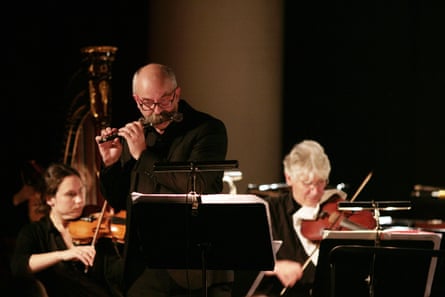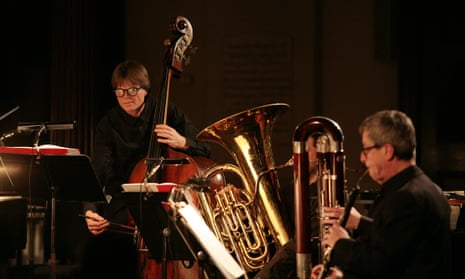The fragile, crystalline sound world of Hans Abrahamsen’s recent music is as distinctive as any in contemporary music. It’s the world inhabited by his Ophelia-inspired song cycle Let Me Tell You, which has brought the composer many new admirers since it was first performed in 2013, but is one that he first explored five years earlier, in the hour-long ensemble piece, Schnee.
These “10 canons for nine instruments”, conducted meticulously by Geoffrey Paterson, were the main work in the London Sinfonietta’s concert. It’s a piece whose exquisite “white polyphony” (Abrahmsen’s phrase) wears very well, conjuring a quiet intensity out of five pairs of canons which get progressively shorter as the work goes on. The rigour and symmetries of the music belie its expressive depths.
The evening had begun with a tribute to Paul Parkinson, the British Council music adviser and untiring new-music champion who died in July, before a brace of new works. Morgan Hayes’s Overture: The Kiss, receiving its world premiere, is the opening part of a sequence of ensemble pieces that may also be performed independently; it’s crammed with striking ideas, though on first hearing some of them didn’t sit together convincingly.

Simon Holt’s enigmatic Fool Is Hurt – the title is a line from Federico Fellini’s La Strada – is that rare thing, a piccolo concerto. The soloist (the indefatigable Michael Cox tonight) spends much of his time several octaves above the rest of the ensemble, whether in suspended animation, extroverted outbursts or tiptoeing furtiveness, and only occasionally gets the chance to touch solid ground.

Comments (…)
Sign in or create your Guardian account to join the discussion